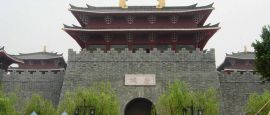Macau: Doing business & staying in touch
Doing business in Macau
Businesspeople should dress smartly. Business cards are essential; Chinese people always hand business cards (or any piece of paper) with two hands, sometimes accompanied by a slight lowering of the head. Using just one hand may be interpreted as rudeness. Appointments should be made in advance and punctuality is appreciated. The World Trade Center (tel: +853 2872 7666; www.wtc-macau.com) offers assistance and various facilities for businesses, including a members only Executive Business Club.
Mon-Fri 0900-1800 with an hour for lunch, Sat 0900-1300. Most government offices are open from 0900-1300 and 1230-1800 on weekdays. Banks normally open from 0900-1700 weekdays and 0900-1200 on Saturday.
Macau reverted to Chinese rule in December 1999, and under the ‘one country, two systems’ policy its economy has retained its capitalist character – it’s widely regarded as one of the most open (in other words, least regulated) in the world. The territory continues to function as a tax haven and as a free port with no foreign exchange control, and the continuation of Macau's economic autonomy has been guaranteed for 50 years.
The lack of natural resources means that agriculture is negligible in Macau, but the territory has long had an active manufacturing sector and acted as an important distribution outlet for Chinese products. Today, though, it’s gambling which is driving growth.
After the handover, the existing casino monopoly was ended and it became easier for people from mainland China to visit. As a result a massive casino resort construction boom has been under way since 2003. The large Las Vegas operators have been investing heavily, bringing with them their name brands. All this has helped Macau to weather recent economic storms, and in 2010 Macau’s growth in GDP (at 25%) was judged to be the fastest in the world.
Major meetings venues include the Macau Tower Conference Centre (www.macautower.com.mo), in one of the world's tallest freestanding buildings which also features a revolving restaurant, entertainment area and shopping facilities. Many of the large new hotels which have opened in recent years, including The Venetian, MGM Grand and Wynn Macau, have state-of-the art meeting and dining facilities.
Raw materials and semi-manufactured goods, consumer goods (food, drinks and tobacco), capital goods, mineral fuels and oil.
Keeping in Touch in Macau
International calls can be made from phone booths, the General Post Office in Senado Square, and the Central Post Offices in Taipa and Colôane. It’s cheaper, though, to make international calls via the internet. Local calls cost MOP$1 from a public phone, but are free from private land lines (hotels usually add a charge).
Roaming agreements exist with most international mobile phone companies. Coverage is good.
Internet facilities are available at the Information Counter at Senado Square, and in the central library and its branches, but there are also many internet cafes in the city.
Airmail to Europe takes five to seven days. Automatic vending machines are available at various locations for stamps.
Opening times vary. Some at key locations including the ferry terminal and airport open Mon-Sat 1000-1900. The Senadao Square head office opens Mon-Fri 0900-1800 and Sat 0900-1300.
Macau's media companies are a mix of private and government run. The Government Information Bureau oversees the media and broadcasters. While Macau's press undoubtedly enjoys more freedom than mainland media, its independence is still tempered somewhat. Media is split between Portuguese-, English- and Chinese-language publications. Portuguese dailies include Hoje Macau and Jornal Tribuna de Macau. Chinese dailies include Macau Daily News and Va Kio Daily. English dailies include Macau Post Daily and Macau Daily Times. There is also an English-language monthly business magazine, Macau Business.
In terms of television, the public network Teledifusão Macau (TDM) operates two free-to-air channels, one in Chinese (Cantonese and Mandarin) and one in Portuguese (with news bulletins also in English). TDM also offers several premium channels. There are also several private companies broadcasting satellite channels. Radio Macau, part of TDM, operates Chinese and Portuguese-language stations.








 You know where
You know where